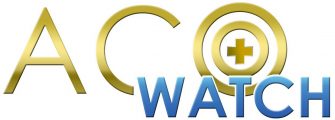By Gregg A. Masters, MPH
Great timing and contextually rich, Accenture released their report ‘Making the Case for Connected Health’ with some surprising observations to some, including this blogger. For the complete report, click here.

To recap, the major findings include:
- Connected health is a must. Governments around the world see connected health as a critical and essential means to improve citizens’ access to quality, lower-cost healthcare. Connected health has gained a high level of acceptance, and there is a prevailing view that without a solid connected health platform, it will be difficult to meet today’s—and future—health challenges.
- Integration is possible. Connected health can and will work with deep and varying underlying industry structures. Different countries have very different provider systems, and these are unlikely to change in the near term. All are fragmented, but in different ways. Healthcare IT connectivity helps bridge this fragmentation to provide better integration.
- Connected health is on a self-sustaining path. Quality and performance measures require an integrated look at the data. These measures also increase the need for additional information, which, in turn, boosts the need for healthcare IT, and process change to enable such measures.
Via U.S. Ahead of Other Countries in Physician Health IT Adoption at iHealthbeat, we can also note the following key facts:
- About 62% of U.S. specialty physicians use electronic tools to improve administrative efficiency, compared with the global average of 49%
- 54% of U.S. primary care physicians use electronic prescribing, compared with a global average of 20%
- 48% of U.S. physician specialists send orders electronically, compared with a global average of about 36%
- 38% of U.S. primary care doctors have electronic access to clinical data about patients who have been seen by a different health care provider, compared with a global average of 33%
- 17% of U.S. physicians have given patients electronic access to their own health data, compared with a global average of 8%.
During a Booz Allen Hamilton webinar titled, Electronic Health Records 2.0: What Does the Future Hold?, Peter Basch, MD, FACP; Medical Director, Ambulatory EHR and Health IT Policy; MedStar Health, quoting the Accenture report remarked on percent of US physicians (vs. global average) using EHRs, HealthIT, e-perscribing, is now ‘..the highest in the world… [followed by laughter, the] I’ll have to change all my slides.’ Entire audio clip here.
The time is now, accountable care is here to stay, health reform legal disposition notwithstanding.

“Integration is possible”. Yes, provided that universally adopted standards are adhered to, otherwise there is no way out of the current technology archipelago. I recently came across an AT&T initiative “AT&T Developer Center For Health” (http://www.qmed.com/news/att-launch-beta-version-its-att-developer-center-forhealth), which creates yet another technology island, with its own data types and formats. This is definitely not the way to go!